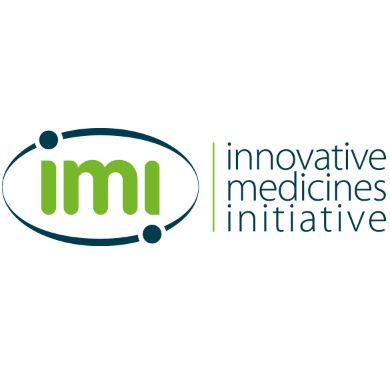
Development of sensitive and validated clinical endpoints in primary Sjögren’s Syndrome (pSS) - IMI2-2017-12-03
Deadline: Oct 24, 2017
CALL EXPIRED
CALL EXPIRED
Specific Challenge:
Currently, published data from placebo-controlled and adequately powered clinical trials in primary Sjögren’s Syndrome (pSS) are scarce. Although specific novel, validated treatment outcome measures have been developed recently, e.g. the European League against Rheumatism (EULAR) Sjögren’s syndrome disease activity index (ESSDAI) and EULAR Sjögren’s syndrome patient reported index (ESSPRI) [4,5], their recent use in clinical trials has yielded mixed results. Important features of pSS such as swallowing difficulties, dietary problems, mental health challenges, sexual dysfunction, dental problems (including tooth loss and decay) are not (adequately) captured. Overall, the utility of the currently available measures (including sensitivity to change in Patient Reported Outcomes (PROs) and in various ESSDAI domains) in assessing efficacy and disease-modifying potential of an investigational drug is still to be determined. Moreover, no objective validated measure or functional marker of disease activity for assessing therapeutic benefits of improvement is currently available. Sensitive and validated endpoints including objective measures/biomarkers of improvement are needed to increase the likelihood of success of drug development in pSS.
Scope:
The major scope of the action generated by this topic will be the identification, development and validation of pSS-related outcome measures including clinical, PRO, laboratory, bio-behavioural activity and imaging parameters (biomarkers), applying the following step-wise approach:
- Data generation and review. Existing data including published epidemiology data, results from interventional and non-interventional studies, and from pSS registries will be reviewed and analysed.
- Development of new outcome measures based on the review and analysis activities.
- Application and validation by prospectively testing of these proposed new pSS outcome measures, as well as existing ones, in (at least one) dedicated, prospective clinical trial.
- Analysis of the outcome of the validation trial and validation of the new endpoint(s). The performance of the new outcome measures or scoring systems will be compared to that of the existing ones, with the purpose to select the most promising outcome measures for future validation.
It is anticipated that the scoring system(s) will require a combination of objective and subjective outcome measures to improve upon existing scoring systems (e.g., selected, core set of ESSDAI domains combined with ESSPRI fatigue or other key PRO items).
If industry sponsored, large e.g. Phase 3 trial(s) are conducted for novel therapies in parallel with (but independently of) the validation trial during the project, the proposed new endpoint(s) may be included as exploratory endpoints in the Phase 3 trials to increase power and robustness of the validation. The analysis of these trials may, however, occur beyond the duration of this IMI action.
Health technology Assessment (HTA) and payer views and expectations will be integrated in determining the endpoints for regulatory approval and market access requirements. Input from patient groups will also be sought and considered in the analyses to capture relevant and currently underestimated or ignored disease aspects.
While the development of the new sensitive and validated clinical endpoints are primarily intended for use in future clinical trials of adult pSS, feasibility in pediatric SS will also be cautiously evaluated for which further validation would be required as part of the project sustainability plan.
Expected Impact:
Expected impact is to enhance the development of new systemic treatments in pSS and to generate evidence for a potential new alternative for consideration by the Health Authorities. .
It is expected to result in more efficient clinical trial designs that will minimize the number of subjects required to be able to detect statistically significant and clinically meaningful differences between treatments. The optimal duration of clinical studies required to demonstrate these differences will also be characterized.
Furthermore, new relevant outcomes will have potential to optimise pSS patients’ management, and large data sets about the natural history of the disease will provide information about the clinical utility of new and innovative diagnostic and treatment interventions in pSS. Engagement of important stakeholders including regulators, payers and patient advocacy groups will help capture all aspects of pSS.
Consequently, improved and innovative therapies are expected to emerge and be available to pSS patients whose health-related quality of life and productivity will eventually improve. Selection of the optimal treatment for the right patient in a clinically and molecularly heterogeneous disease will be made possible in pSS
Public link: Only for registered users
 Innovative Medicines Initiative (IMI)
Innovative Medicines Initiative (IMI)


Please Log In to See This Section